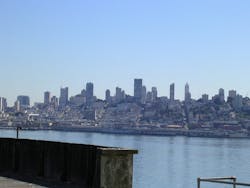City of San Jose Files Lawsuit Against Monsanto Over PCB Contamination
The city of San Jose, Calif., filed a lawsuit to hold Monsanto Co. responsible for polychlorinated biphenyl (PCB) contamination that finds its way into the city’s storm water that flows into San Francisco Bay. The State Water Resources Control Board recently issued a tentative order affecting San Jose’s storm water operations and potentially reducing the total maximum daily load (TMDL) specifically aimed at PCBs.
PCBs are man-made chemical compounds that were produced by Monsanto Co. in the U.S. from the early 1930s until the late 1970s, when Congress banned the production and use of PCBs based on their danger to human and environmental health. During those five decades, Monsanto’s PCBs were incorporated into a variety of products and applications including electrical equipment, paints, caulks and other building materials.
According to the lawsuit, Monsanto knew then that PCBs were toxic and could not be contained as they readily escaped into the environment finding their way into bays, oceans, lakes, rivers, streams, soil, and air. The suit says that although Monsanto recognized internally that PCBs were becoming “a global contaminant,” it concealed this information and increased production of these profitable compounds.
As a result, PCBs are now a common environmental contaminant, found in all natural resources including water bodies and plants as well as in the tissues of all forms of marine life, animals and humans. The chemicals can destroy fish habitats and are associated with illnesses and cancer in humans.
The State Water Resources Control Board has determined that the presence of PCBs in San Jose storm water threatens San Francisco Bay as a habitat for fish and wildlife, impairs its use for recreational opportunities, compromises its quality as a tourist and convention destination, and interferes with its use and enjoyment by the people of the State of California. Other California cities are subject to similar storm water permits with TMDLs related to the reduction of PCBs prior to discharge into the ocean or other waterways.
“No company should be allowed to contaminate the environment and rely upon taxpayers to clean up the mess. Monsanto, one of the most sophisticated chemical companies in the world, knew decades ago that PCBs were a significant contamination threat,” said Attorney Scott Summy, a shareholder at Baron & Budd, P.C., one of two firms representing San Jose in the lawsuit.
“The city will incur significant costs to remove PCBs from storm water flowing into San Francisco Bay, costs that should not be borne by the state or by taxpayers but by the company that knew its product would cause this contamination,” said Attorney John Fiske, of Gomez Trial Attorneys.
A similar lawsuit was recently filed by the same law firms on behalf of the city of San Diego.
Source: Baron & Budd and Gomez Trial Attorneys
